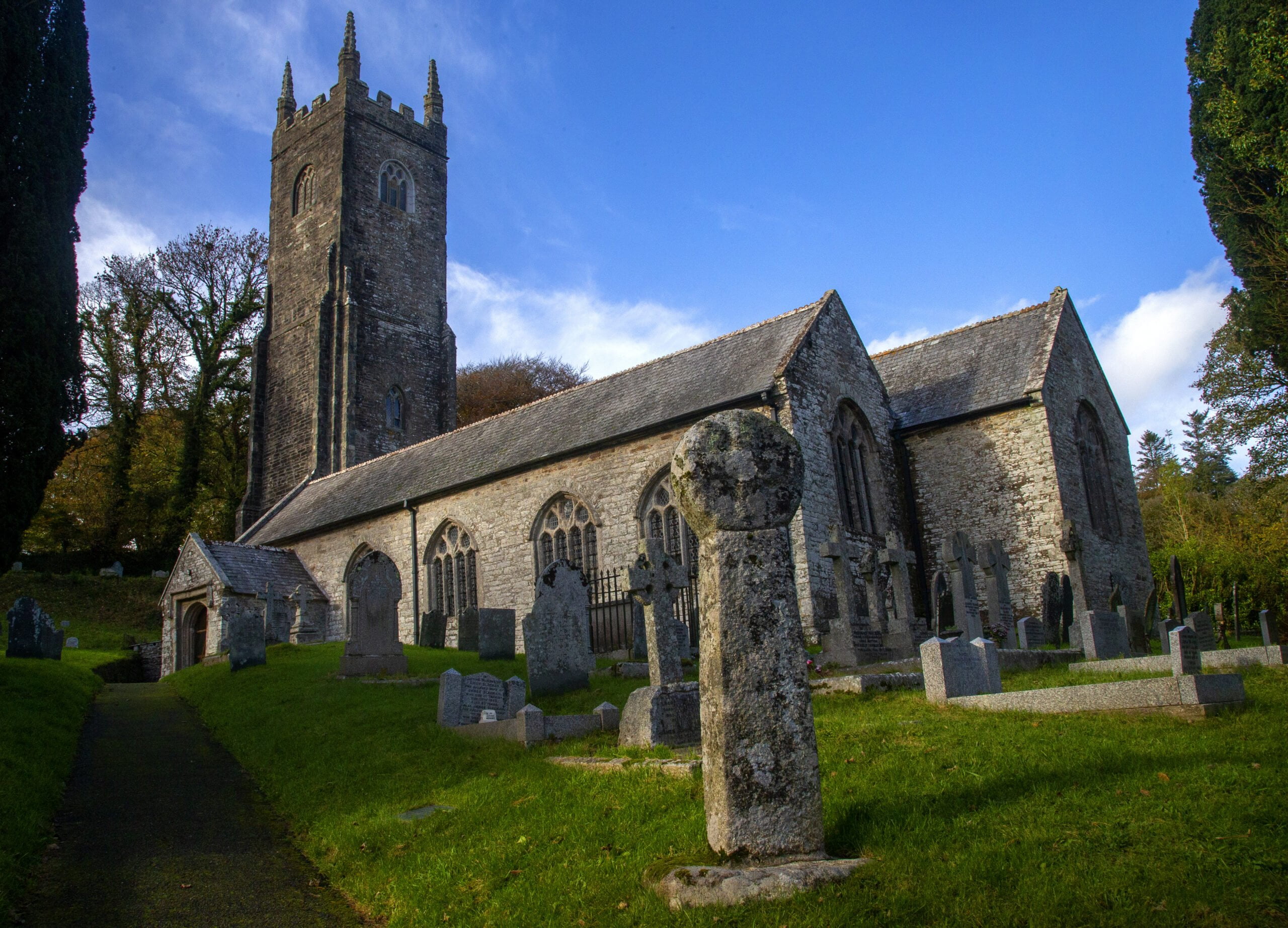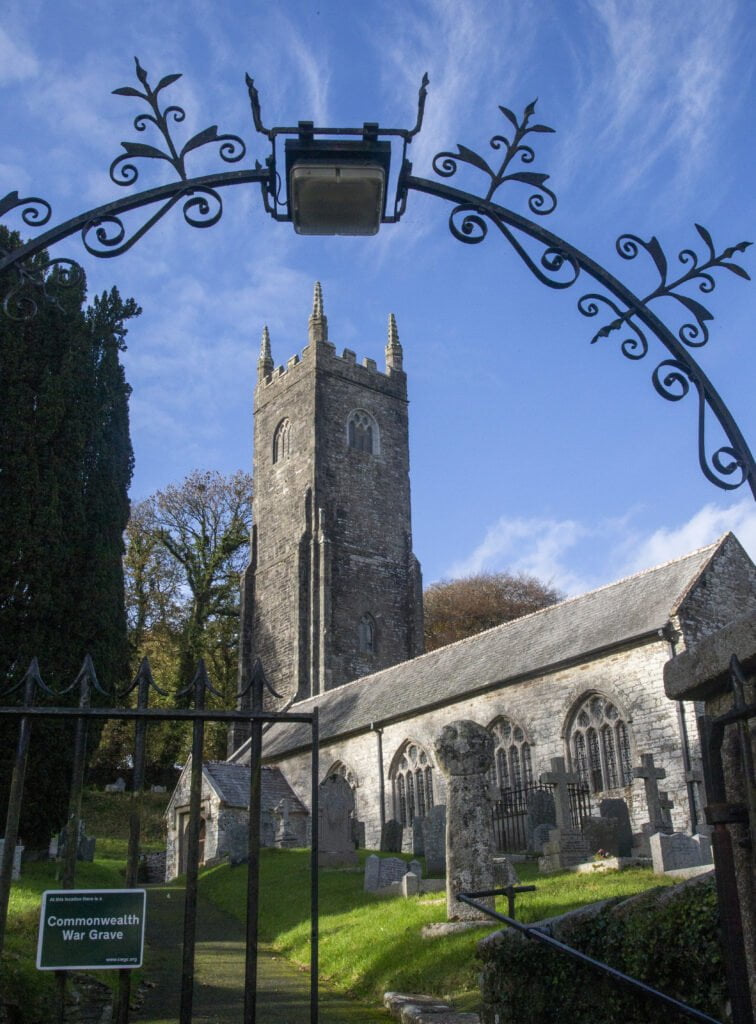- Swing High, Swing Low by Eve Northey
- So what is everyone doing during this lockdown?
- Why not email admin@cornwallyesteryear.com and tell us what your community is doing please?
Altarnun, the parish in which I was born ten years before the beginning of the Second World War, has its western side firmly embedded in Bodmin Moor, that windswept expanse of light and shadow where Roughtor and Brownwilly stand sentinel over Cornwall. In the village from which the parish takes its name, granite moorstone cottages spread out from the tall-towered Norman church. Together they give a sense of solidity and permanence, something now consciously realised but then unconsciously relied upon as a fact of life. Altarnun revisited is neat and well ordered, even winning “Best Kept Village” awards. Then it was a ramshackle sort of place with a leat, partly covered by perilously balanced slates, running past the houses. Pride of place was given over to a farmyard, odorous in winter and summer alike.
In this age of travel-orientated advertising with package holidays to remote places a commonplace, it is hard to remember that only some sixty years ago travelling abroad was only for the rich and leisured. When I was a child pleasures were simple and near to hand. Holidays, meaning going away from home, were unknown in our village and I have no recollection of my parents doing so but there was no feeling of deprivation because we were all the same. What leisure activities there were arose out of life of the village community.
Sunday School outings to the seaside enlivened things greatly with rivalry between church and chapel to see which could put on the best show.

The bus, or charabanc, called, would arrive at more or less the appointed time to be greeted by the assembled hopefuls. We didn’t dress up in our best clothes exactly, but neither did we enjoy the comfort of today’s brightly coloured casual wear. Except for buckets and spades, bags bursting with enough provisions to withstand a siege of several days, we might have been setting off for a formal gathering. A favourite destination was Polzeath which provided the essential ingredient of a vast expanse of firm golden sand. At the time there was not much else, none of the gaudy “attractions” of Polzeath today. I suppose there must have been ice cream somewhere. What I do remember is the terror and excitement of the sea – there was so much of it – and the blue sky, the boisterous wind whipping up skirts and blowing sand in eyes. Eventually of course, informality took over, marked everlastingly, for me, by the sight of the vicar, trousers rolled up, paddling bravely in the freezing water, one hand clutching at his straw hat while the other tried in vain to keep his black clerical vest tucked into his waistcoat.
At some stage the frails were opened. These were light carrier bags made of raffia or any soft material. I have never heard the term outside Cornwall, but it is recorded in the Shorter Oxford English Dictionary. Within each frail were luscious ham sandwiches, saffron buns and, of course, pasties. Much has been written about the Cornish pasty, often making a straightforward matter into a complicated culinary marathon.
So, pasties consumed, the day would lapse into an after-math of dozing grown-ups and children shouting and running on the astonishing golden carpet of sand with all the time and eternity reflected in the clear water of the rock pools.
The highlight of the summer was the Patronal Festival. As well as special services in the church, the vicar hosted a garden party, or “the Revel” as it was called, in the Glebe field. The major attraction, as far as I was concerned was the swing boat, a huge, gondola-like contraption suspended between frames, seating two passengers, one at each end. By pulling the ropes alternately the boat was propelled higher and higher in a gloriously free yet safe motion. My admiration for my father knew no bounds. His steady pulls at his rope gave me enough confidence at my end and away we sailed in perfect unity. No words were exchanged – he was the most silent man I ever knew – but now and then he would smile contentedly across at me and my cup would be full.

Wintertime was cheered by a series of “Socials”. We had no village hall as such. The old school on the green did duty as the “social room”. A social consisted of a sort of family party routine with party games: spin the platter, pass the parcel and so on, interspersed with dancing. There was the barn dance and something languorous sounding called the Velita. At some stage supper would be served and gallons of tea dispensed. Physical exertion, the heat from the massive tortoise stove and clouds of dust rising from the ancient floorboards soon reduced throats to parching numbness.
The finale to these evenings always followed its two-part order. First, we would all join hands, standing in a circle, singing Auld Lang Syne, perspiring hand grasping perspiring hand, and then still keeping the circle with the vicar in the middle, we slipped naturally into the lovely words of the Service of Compline. “Brethren be sober, be vigilant…” and the comforting security of “Preserve us Lord while waking and guard us while sleeping, that awake we may watch with Christ and asleep we may rest in peace”.
Then into the crisp, clear night, the arched dome of stars immeasurably far off yet somehow enveloping the village like a blanket. The houses wore an air of mystery unknown in daylight. Walking between my parents, one hand in Father’s large grasp and the other tucked into Mother’s inside her pocket, there was the adventure of being up and out in the night. Just as nice was the thought of being tucked up in bed, feet snugly resting against the stone hot water bottle wrapped in bright red cover. Once we arrived home to find a large and angry turkey tied to the leg of the kitchen table. It appeared we had won it in a raffle!
Looking back, it is all so different from today’s frenetic attempts to stave off boredom. It is true we did not have television nor access to theatres and so on but what we did was very precious. I never cease to be thankful for that early rootedness and sense of belonging to a community whose leisure was part of its life.